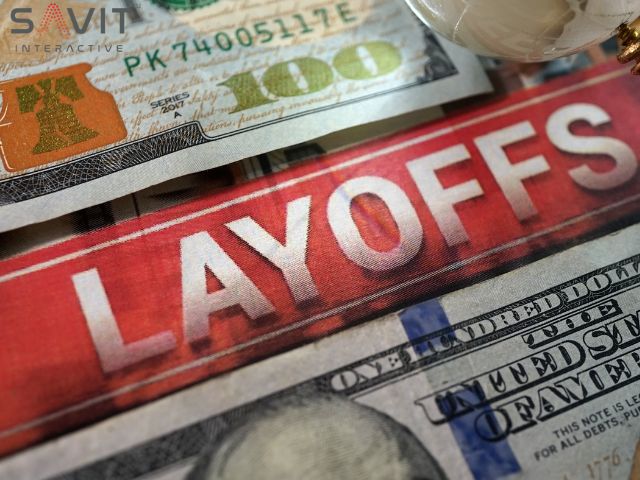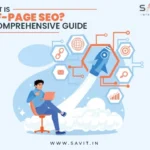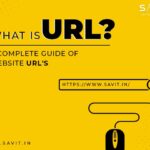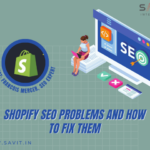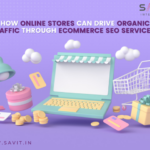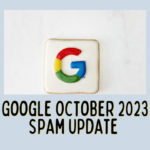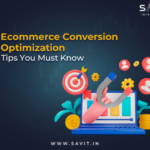There’s no question that you have heard about one piece of info in the news lately unless you live under a rock: Amazon, Google, and Microsoft- Big Tech job cuts. Even its own hashtag, #layoffs2023, is used for it. No matter how relevant they are to you, mass layoffs of any kind are disturbing, but as a small business owner or marketer, you might be concerned. It’s true that it’s about “Big” Tech, but will or will it have any effects on small businesses? Will this affect PPC or ad platforms as many of these businesses?
In order to provide you with some crucial insights, diving deep into the narrative from a much-needed perspective. Read on to discover:
What’s going on with Big Tech?
The Big Tech sector had more IT layoffs in January 2023 than in any other month since the outbreak. To put things in perspective, 159,684 tech jobs were eliminated in 2022, but 68,502 were eliminated in January 2023 alone, which is greater than 43% of the entire layoffs observed in the last year. A number of businesses, including Google, Microsoft, Informatica, Salesforce, Amazon, SAP, IBM, Spotify, Wayfair, Zomato layoffs, Coinbase, and Vox Media, have made large-scale recent layoffs in India. As was already noted, mass layoffs are constantly worrying. Still, this situation is particularly interesting because it is not only unexpected but also being described as one of the worst contractions in the sector’s history.
When you consider it in terms of the labour market, it is also a little strange. According to the journalist for The Atlantic:
The labour market was struggling in the 2010s, but the tech industry was expanding.
Tech boomed while the economy experienced a “flash freeze depression” during the pandemic.
The labour market is robust right now, but technology is “bleeding.”
So, what is happening here? Why are there so many layoffs?
Below are the various elements that are at play addressed in detail. Here is a summary:
The anticipated “acceleration” of technology brought on by the epidemic turned out to be only a “bubble.” According to tech businesses, consumers, and investors alike, the rise in remote work, e-commerce, and other internet Marketing platforms during the epidemic set us on a fast track to the 2030s. But this hasn’t happened. We never got there; we are still just getting started and returning to the same rate of movement as in 2019. Therefore, all of that growth and investment are currently in excess.
The contraction follows:
Inflation led to a decline in advertising:
Remember that many of these tech firms, including Google, Meta, Amazon, and others, also function as advertising platforms. Additionally, many firms cut back on advertising because it is frequently one of the first sectors to experience budget cuts amid a weak economy—not to mention that advertising prices rose along with everything else in 2022 as inflation reached its greatest levels in 40 years.
Businesses are getting ready and changing:
Recent layoffs in India are also taking place for some businesses as a preventative precaution. Even if inflation has decreased from 9% to 6.5%, it still appears to be on the mend, which is why economists, as well as businesses and consumers, are still concerned about a recession. These organisations must plan for companies and consumers to continue to reduce spending even in the new year by reducing their own spending to sustain profitability and convey the right message to shareholders. There are, of course, ancillary theories and schools of thinking, but these are the core arguments that permeate all articles on the subject.
What does it imply for PPC and small businesses?
Now that you understand what is happening and why, let’s explore what this implies for small businesses and PPC based on news items, the debate from last week’s PPC chat, and the actual PPC professionals. The following main conclusions seem particularly relevant:
There is no risk to big tech
The phrase “revenue decline” does not imply that all of these companies are in trouble or are about to go out of business. Do not forget that these are enormous companies, not just firms. And although if these changes are historic, they are still minor in terms of percentage, as stated in the NPR report. These businesses are still incredibly affluent, and during the past ten years, Big Tech has experienced rapid expansion. In 2022, Microsoft alone generated $198 billion in sales. These actions are not a warning that they are about to vanish; instead, they constitute a course adjustment to get back on that growth trajectory in line with the post-pandemic narrative as it develops.
This is really transitory; digital advertising will continue to expand:
Given the aforementioned, it is not unexpected that many PPC marketers believe this is merely a short-term situation and are not worried about a future recession or its effects on small businesses or advertising in general.
Widespread IT layoffs and economic downturns have historically resulted in booms eventually. For instance, the 2008 financial crisis eventually paved the road for the 2010s tech boom. It is not necessarily a claim it will happen right now, simply that these economic circumstances frequently have a cyclical aspect. It’s important to note that, except for Twitter, no one else is worried about any other platform.
It might create new possibilities:
Many PPC leaders and practitioners also agree that because there are so many bright people without jobs and with free time on their hands, new opportunities or movements may arise.
The essential factor to consider is that tens of thousands of people are returning to the line of work with years of experience and expertise working with various clients, top-notch talent and budgets. Their familiarity with the tools and features of their old employer also gives them a distinct perspective on the industry that many of us lack.
Additional small consulting firms could start up:
Additionally, there will be an increase in the number of small consultancies. A lot of talented people in the industry will switch from major brands to independent contract employment. A 1099 employee poses significantly less risk to a business than a W2 employee, both financially and legally. People with talent who have lost their jobs may source their skills from numerous organisations to establish several income streams for themselves and manage their own health insurance through their own LLCs.
Be ready for outages and/or support gaps:
Another worry is that there might be a decline in customer support or additional outages. On January 23, Google Ads was down for three hours. Many people concur that there is already a lack of support; therefore, this might be a problem.
The brands that are letting go will have more attention than ever directed towards them. The key drivers of increasing customer turnover will be decreased tolerance for subpar service and true return on investment with any platform (Google, Microsoft, Amazon). When Google Ads disappeared hours after the layoffs, many thought it was strange. If these might increase in frequency, the business community won’t be as patient with them.
The final word
I hope that some of the mystery surrounding the numerous IT layoffs at Big Tech is cleared out with this post. Suppose you weren’t entirely sure what was going on. A little worry is okay, but panic? As for how you should feel, say that a bit of worry is OK, but panic? Not required. The industry veterans and experts aren’t making any significant changes. The goal is to “help clients stay ahead and maintain stability. Your account and performance will remain strong as long as you stay on top of the storyline, monitor your analytics, and make PPC decisions based on data rather than automatically generated suggestions!
